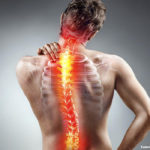Cardiovascular disease, including heart attacks and strokes, is a leading cause of death globally. The good news is that many risk factors for cardiovascular disease can be managed or modified through lifestyle changes. By making positive choices and adopting healthy habits, you can significantly reduce your risk of developing cardiovascular disease and improve your heart health.
Understanding Cardiovascular Disease
Cardiovascular disease refers to conditions that affect the heart and blood vessels, such as coronary artery disease, heart failure, and hypertension. These conditions can lead to serious complications and have a significant impact on overall health and quality of life. By managing risk factors and adopting a heart-healthy lifestyle, you can minimize the chances of developing these conditions.
Tips for Reducing the Risk
- Quit Smoking: Smoking is a major risk factor for cardiovascular disease. Quitting smoking is one of the most significant steps you can take to improve heart health. Seek support from healthcare professionals, join smoking cessation programs, and utilize strategies such as nicotine replacement therapy to increase your chances of successfully quitting.
- Adopt a Heart-Healthy Diet: A balanced diet plays a crucial role in reducing the risk of cardiovascular disease. Aim for a diet rich in fruits, vegetables, whole grains, lean proteins, and healthy fats. Limit your intake of saturated fats, trans fats, cholesterol, sodium, and added sugars. Consider the Mediterranean diet, which is associated with a lower risk of heart disease.
- Regular Physical Activity: Engaging in regular exercise has numerous benefits for heart health. Aim for at least 150 minutes of moderate-intensity aerobic activity or 75 minutes of vigorous activity each week. Incorporate activities that you enjoy such as walking, swimming, cycling, or dancing. Physical activity not only strengthens the heart but also helps control weight, lowers blood pressure, and reduces stress.
- Maintain a Healthy Weight: Being overweight or obese increases the risk of cardiovascular disease. Achieving and maintaining a healthy weight can significantly reduce this risk. Focus on a combination of regular physical activity and a balanced diet to reach and maintain a healthy weight range. Consult with healthcare professionals or registered dietitians for personalized guidance.
- Manage Blood Pressure: High blood pressure (hypertension) is a major risk factor for cardiovascular disease. Monitor your blood pressure regularly and take steps to keep it within a healthy range. This may include reducing sodium intake, increasing physical activity, managing stress, and, if necessary, taking prescribed medications as directed by your healthcare provider.
- Control Cholesterol Levels: High levels of LDL (bad) cholesterol and low levels of HDL (good) cholesterol can contribute to the development of cardiovascular disease. To manage cholesterol levels, maintain a healthy diet, exercise regularly, and, if needed, take medications as recommended by your healthcare provider.
- Manage Diabetes: Diabetes increases the risk of cardiovascular disease. If you have diabetes, it’s crucial to manage your blood sugar levels through a combination of medication, healthy eating, regular physical activity, and regular monitoring.
- Limit Alcohol Consumption: Excessive alcohol consumption can contribute to high blood pressure, obesity, and increased risk of heart disease. If you choose to drink, do so in moderation. It is recommended to limit alcohol intake to one drink per day for women and up to two drinks per day for men.
- Manage Stress: Chronic stress can have a negative impact on heart health. Find healthy ways to manage stress, such as practicing relaxation techniques, engaging in hobbies, connecting with loved ones, and seeking support from professionals when needed.
- Regular Check-ups and Screenings: Regular check-ups with your healthcare provider are essential to monitor blood pressure, cholesterol levels, and overall heart health. They can also provide guidance on specific lifestyle modifications and recommend appropriate screenings based on your age, gender, and risk factors.
Reducing the risk of cardiovascular disease is within your control. By adopting healthy habits, such as quitting smoking, following a heart-healthy diet, engaging in regular physical activity, maintaining a healthy weight, managing blood pressure and cholesterol levels, controlling diabetes, limiting alcohol consumption, managing stress, and staying proactive with regular check-ups, you can significantly improve your heart health and reduce the risk of developing cardiovascular disease. Remember, small but consistent changes in your lifestyle can lead to significant long-term benefits for your heart and overall well-being.











